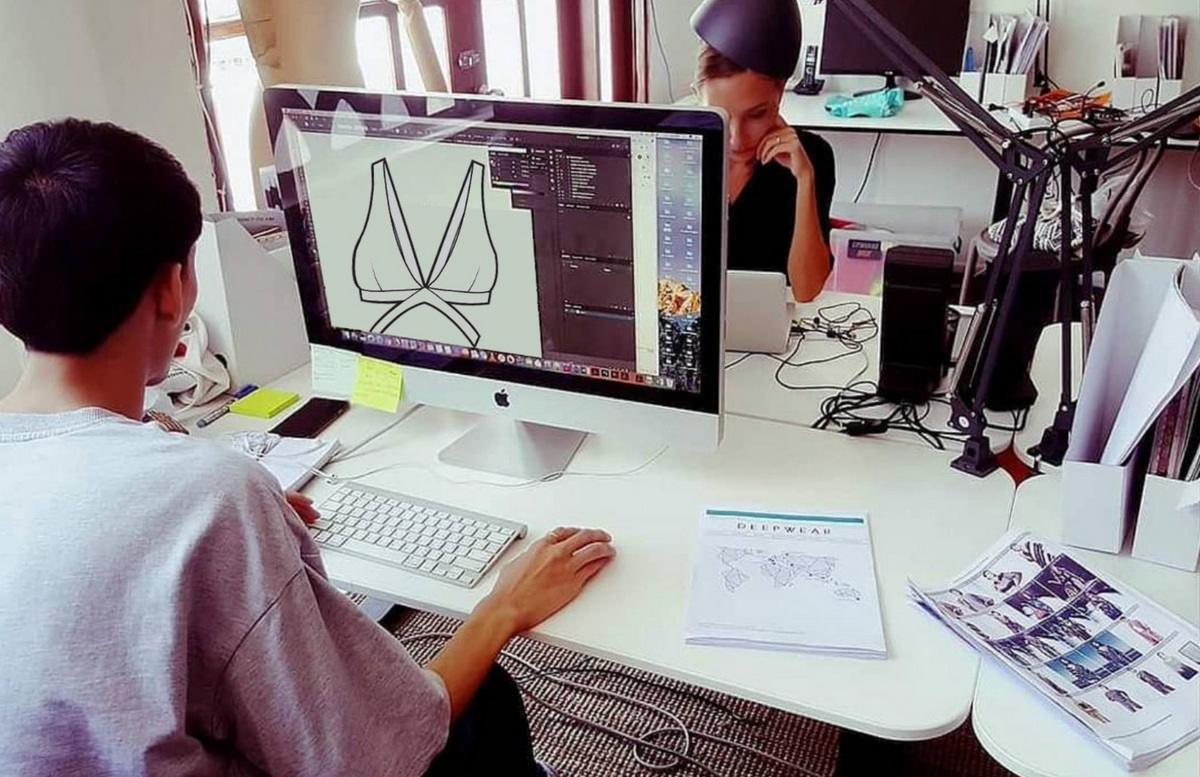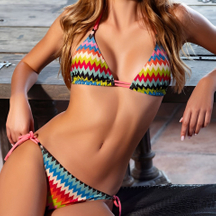Content Menu
● Understanding the Role of Wholesale Swimwear Manufacturers
● Key Factors to Consider When Choosing a Wholesale Swimwear Manufacturer
>> 1. Quality of Products
>> 2. Customization Options
>> 3. Minimum Order Quantities (MOQs)
>> 4. Lead Times and Delivery
>> 5. Sustainability Practices
>> 6. Reputation and Experience
● Additional Considerations When Selecting a Manufacturer
>> 7. Communication and Support
>> 8. Technology Integration
>> 9. Ethical Labor Practices
● The Process of Working with a Wholesale Swimwear Manufacturer
>> Step 1: Initial Consultation
>> Step 2: Design Development
>> Step 3: Sampling
>> Step 4: Production
>> Step 5: Quality Control
>> Step 6: Delivery and Marketing
● Marketing Your Swimwear Line
>> 1. Social Media Campaigns
>> 2. E-Commerce Optimization
>> 3. Seasonal Promotions
● Conclusion
● Frequently Asked Questions (FAQs)
>> 1. What should I look for in a wholesale swimwear manufacturer?
>> 2. What are minimum order quantities (MOQs)?
>> 3. How can I ensure product quality?
>> 4. What are sustainable materials used in swimwear?
>> 5. How long does it take to produce swimwear?
● Citations:
In the competitive world of fashion, particularly in swimwear, choosing the right wholesale swimwear manufacturer is crucial for the success of your brand. With the increasing demand for stylish and sustainable swimwear, brands need to partner with manufacturers who not only provide quality products but also align with their brand values. This article explores the key factors that contribute to a great wholesale swimwear manufacturer, helping you make an informed decision for your brand.

Understanding the Role of Wholesale Swimwear Manufacturers
Wholesale swimwear manufacturers serve as the backbone of swimwear brands, providing the necessary products to meet consumer demand. They handle everything from design and production to logistics and shipping. A reliable manufacturer can significantly impact your brand's reputation and profitability.
Key Factors to Consider When Choosing a Wholesale Swimwear Manufacturer
1. Quality of Products
The quality of swimwear is paramount. Consumers expect durable, comfortable, and stylish pieces. High-quality materials such as recycled fabrics (like ECONYL® and REPREVE®) are increasingly popular due to their sustainability credentials. Look for manufacturers that prioritize quality control throughout the production process.
- Tip: Request samples before committing to a large order to assess the quality firsthand.
2. Customization Options
A great manufacturer should offer extensive customization options to help your brand stand out in a crowded market. This includes:
- Custom designs tailored to your specifications
- A variety of colors, patterns, and sizes
- Branding options like custom labels and tags
Manufacturers like Bali Swim provide personalized services that allow brands to create unique collections that resonate with their target audience.
3. Minimum Order Quantities (MOQs)
Understanding MOQs is essential for managing inventory and costs effectively. Some manufacturers have high MOQs, which can be challenging for startups or smaller brands. Look for manufacturers that offer flexible MOQs, such as Swimwear Bali, which allows orders starting at just 300 pieces per purchase order.
4. Lead Times and Delivery
Timely delivery is crucial in the fashion industry, where trends can change rapidly. Ensure that your chosen manufacturer has a track record of meeting deadlines. Manufacturers should provide clear timelines for production and shipping, allowing you to plan your inventory effectively.
- Example: Manufacturers like AEL Apparel are known for their quick lead times, making them ideal partners for brands needing fast turnaround.
5. Sustainability Practices
With growing consumer awareness around environmental issues, partnering with a manufacturer that prioritizes sustainability can enhance your brand's appeal. Look for manufacturers that use eco-friendly materials and sustainable production practices.
- Notable Manufacturer: Bali Swim operates from a solar-powered factory and uses eco-conscious fabrics, making them an excellent choice for environmentally-minded brands.
6. Reputation and Experience
Researching a manufacturer's reputation in the industry is vital. Established manufacturers often have proven track records and can provide references from previous clients. Look for reviews and case studies that highlight their experience in producing swimwear.
- Recommendation: Manufacturers like Mar Egeu, known for their ethical practices and high-quality Brazilian fabrics, have built a strong reputation over decades.
Additional Considerations When Selecting a Manufacturer
7. Communication and Support
Effective communication is essential when working with a manufacturer. A responsive team can help resolve issues quickly and efficiently, ensuring smooth collaboration throughout the production process. Evaluate potential manufacturers based on their communication style during initial inquiries.
- Tip: Choose manufacturers who are willing to engage in regular updates during production phases.
8. Technology Integration
In today's digital age, technology plays a significant role in manufacturing efficiency. Look for manufacturers who utilize advanced technology in their processes—such as automated cutting machines or digital printing techniques—which can enhance precision and reduce waste.
- Example: Some manufacturers offer online portals where you can track orders in real-time, providing transparency throughout the production process.
9. Ethical Labor Practices
Ethical labor practices are increasingly important to consumers who prioritize social responsibility in their purchasing decisions. Ensure that your chosen manufacturer adheres to fair labor standards, providing safe working conditions and fair wages for employees.
- Research: Look into certifications such as Fair Trade or WRAP (Worldwide Responsible Accredited Production) which indicate compliance with ethical labor practices.
The Process of Working with a Wholesale Swimwear Manufacturer
Step 1: Initial Consultation
Start by discussing your vision with potential manufacturers. This includes sharing your design ideas, target market, and any specific requirements you have.
Step 2: Design Development
Once you've selected a manufacturer, work together on developing designs. Many manufacturers offer assistance in this stage, providing insights into current trends and consumer preferences.
Step 3: Sampling
Before moving into bulk production, request samples of your designs to evaluate fit, fabric quality, and overall aesthetics.
Step 4: Production
After approving samples, the manufacturer will begin production based on your specifications. Maintain open communication during this phase to address any potential issues promptly.
Step 5: Quality Control
Implement quality control measures to ensure that the final products meet your standards before they are shipped.
Step 6: Delivery and Marketing
Once production is complete, focus on marketing your new swimwear line effectively through various channels such as social media, online stores, and pop-up shops.
Marketing Your Swimwear Line
Once you've partnered with a reliable wholesale swimwear manufacturer and produced your collection, it's time to focus on marketing strategies:
1. Social Media Campaigns
Leverage platforms like Instagram and TikTok where visual content thrives. Create engaging posts showcasing your swimwear line in beautiful locations or during summer activities to attract attention from potential customers.
- Tip: Collaborate with influencers who align with your brand values to reach a broader audience.
2. E-Commerce Optimization
Ensure that your online store is user-friendly with high-quality images of your products from multiple angles. Include detailed descriptions highlighting unique features such as fabric quality or eco-friendliness.
- Recommendation: Consider using platforms like Shopify or WooCommerce which offer customizable templates specifically designed for fashion retailers.
3. Seasonal Promotions
Plan seasonal promotions around holidays or events such as summer vacations or spring break when swimwear sales peak. Offering discounts or bundle deals can incentivize purchases during these times.
Conclusion
Choosing the right wholesale swimwear manufacturer involves careful consideration of various factors including product quality, customization options, sustainability practices, lead times, communication skills, ethical labor practices, and technology integration. By partnering with a reputable manufacturer that aligns with your brand's values and goals, you can successfully launch or expand your swimwear line in today's competitive market while ensuring customer satisfaction through quality products.
Frequently Asked Questions (FAQs)
1. What should I look for in a wholesale swimwear manufacturer?
- Look for quality products, customization options, reasonable MOQs, timely delivery, sustainability practices, communication skills, ethical labor standards, and a solid reputation.
2. What are minimum order quantities (MOQs)?
- MOQs refer to the minimum number of units you must order from a manufacturer at one time; this varies by manufacturer but is crucial for managing costs effectively.
3. How can I ensure product quality?
- Request samples before placing bulk orders to assess fabric quality and construction; implement quality control measures during production as well.
4. What are sustainable materials used in swimwear?
- Sustainable materials include recycled fabrics like ECONYL® (made from ocean plastic) and REPREVE® (made from recycled bottles), which appeal to environmentally-conscious consumers.
5. How long does it take to produce swimwear?
- Production times vary by manufacturer but typically range from 4 to 8 weeks after sample approval; always confirm timelines before starting production.
Citations:
[1] https://baliswim.com/wholesale-swimwear/
[2] https://appareify.com/hub/swimwear/best-swimwear-wholesale-vendors
[3] https://brazilian-bikinis.net
[4] https://brandsgateway.com/blog/best-wholesale-swimwear-suppliers/
[5] https://www.made-in-china.com/products-search/hot-china-products/Wholesale_Swimwear.html
[6] https://swimwearbali.com
[7] https://activeqstom.com/swimwear-manufacturing-in-bulk/
[8] https://www.bikiniprivatelabel.com
































































